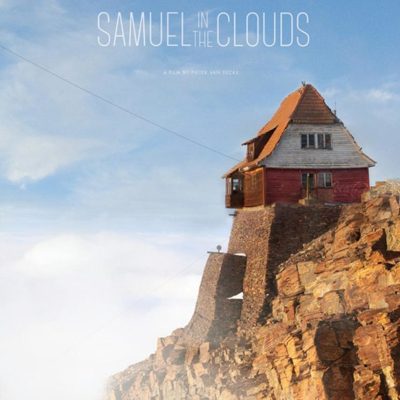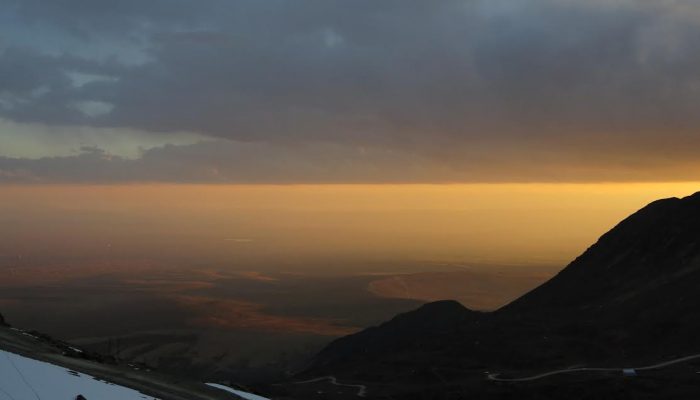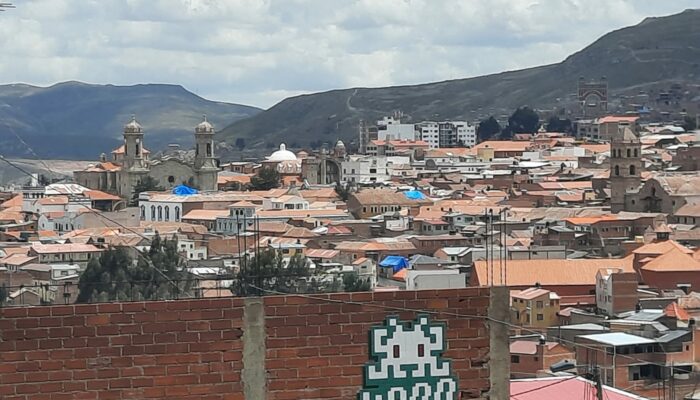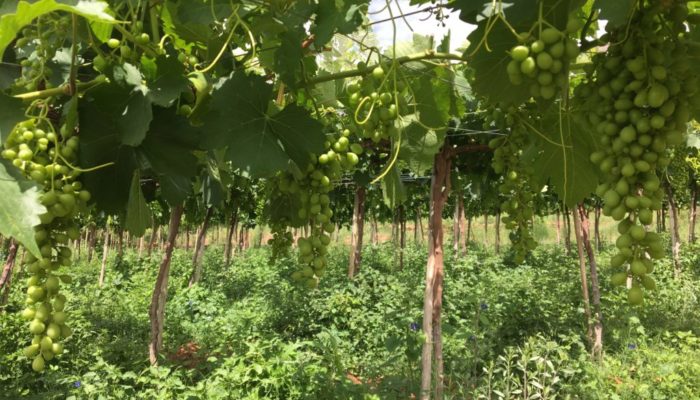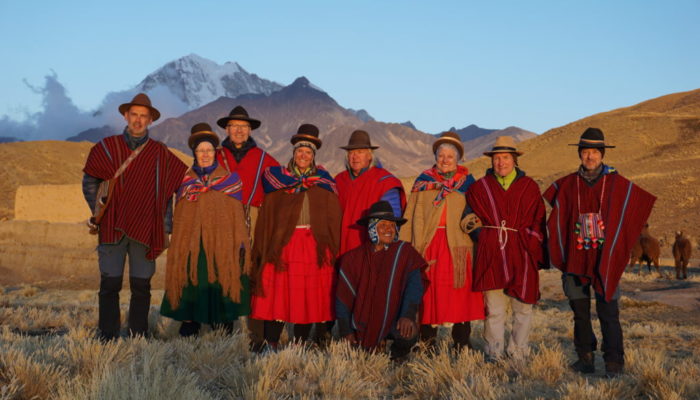Shot in Bolivia, the documentary film “Samuel in the clouds” (“Samuel en las nubes” in Spanish) directed by Pieter Van Eecke, tells the story of Samuel, an employee at the former Chacaltaya ski resort (5,421 metres). The film takes a poetic approach to the alarming melting of glaciers as a result of global warming.
The film won over the jury for “its formal beauty – there isn’t a setting that isn’t magnificent – and its great simplicity of narration, a slow rhythm that took us elsewhere. It’s a film to experience!” summed up director Guillaume Vincent, a member of the jury at the Autrans International Mountain Film Festival. Libération, 6 December 2016.
“Hello Isabel,
We had the opportunity to see you in the documentary film “Samuel in the clouds”, which is currently showing at the Cinemateca Boliviana de la Paz, and we were very curious to talk to you about your presence in the film.
To begin with, can you tell us a bit about yourself and your work as a researcher here in Bolivia?
My name is Isabel Moreno Rivadeneira, and I’m a Bolivian of both Andean and Amazonian origins, with a keen interest in meeting new people and making new discoveries. After doing my degree in Bolivia, I left to specialise in Earth Sciences in Grenoble, where I spent five very enjoyable years. I’ve always loved travelling, no doubt thanks to my family, who in their own way are very adventurous (my parents taught Spanish at the University of Beijing for two years, so my little sister learnt to speak Chinese before she learnt Spanish!) Studying was a great excuse to discover another continent. I now work as a research engineer for the Observatory run by the public university (UMSA) in Chacaltaya.
How did you come to be in the film, and can you tell us about the filming process?
The interaction was inevitable, as the scientific observatory is next door to the Andean Club. At first, all I did was answer e-mails with thousands of questions from the director, Pieter Van Eecke, and watch the filming from a distance. But little by little I began to get closer to the action, as much out of curiosity as anything else. Pieter ended up teaching me a lot of interesting things about the history of the Andean Club – and also out of sympathy for the whole team. I was impressed by their hard work and meticulousness… It’s not easy lugging around heavy and not at all ergonomic equipment at 5,300 m!
What was your relationship like with the director Pieter Van Eecke, the lead actor Samuel and all the other players, including the film crew and the scientific team?
I’d already met Samuel Mendoza in Chacaltaya, but he’s not very talkative. Pieter has the ability to create an atmosphere of trust around him. So, thanks to the filming, I got to know my mountain neighbour, Samuel, better, and thanks to him I got to know other characters who are even less talkative than he is, like the slate quarrymen. Samuel is the key to this mountain. I’m not the only one who works at the station; some of my colleagues appear in the documentary.
In general, I climb to the summit alone to do my manoeuvres and I really enjoy this moment of walking in silence with myself, with the view of the Sajama and Lake Titicaca. Nevertheless, it’s always a pleasure to see friendly faces up there, sharing a mate of coke in the suspended world of the mountain.
Anne from the Thaki team is a passionate Andean climber who has climbed all the 6,000-metre peaks in Bolivia. She sees and worries about the sad melting of the glaciers, which she describes in her book “La Cordillère Royale”.
As a scientist, can you tell us more about the situation at Chacaltaya and future scenarios?
I understand, when I find myself in front of a glacier I feel like I’m falling in love. My heart beats fast, although… it must be mountain sickness (laughs). All the same, I have a feeling of happiness and fulfilment. The loss of glaciers is a reality, and with them we lose much more than a nice body of frozen water.
Apart from the climatic effects, decades drier than before and rising global temperatures observed in the tropical Andes, Chacaltaya has been finished off by the almost daily arrival of pollution from the metropolitan area. For the future, we need to start by accepting that we are moving towards a climate we know nothing about, and that we need to start taking steps to adapt to it as best we can.
We know that Bolivia is currently suffering from a very critical situation (water rationing) due in part to climate change. How are you reacting to the current situation?
I’m worried, no doubt, but I’m trying to react as calmly as possible. Just before the crisis, we had installed a rainwater collection system at home. You don’t realise how much water falls from the sky! I believe that if during the rainy season everyone encouraged the use of rainwater for toilets, washing clothes, watering the garden, etc., we could relieve the load on the dams. But for that to work, everyone has to become aware of it, and I think that those who have been badly affected by rationing have already done so.
I’m trying to discuss this with people, because I think we need to strengthen the community spirit in the towns.
Looking beyond the ‘professional sphere’ and your work as a researcher, can you tell us about any personal commitments or actions you are taking to tackle the challenges of global warming?
It’s been a long time since my head finally convinced me. I’m trying to make peace with the Earth in everything I do. You have to be kind to the environment, to other people and to yourself if you want to be reconciled with Nature.
Outside my home, I support as much as I can the work of collectives in this respect, such as La Casa de los Ningunos, Terra Nova and Círculo Achocalla.
Finally, do you know if the film will soon be available in France, and would you like to say one last word to our readers?
Only very good news: “Samuel in the Clouds” has just won the Grand Jury Prize at the Autrans International Mountain Film Festival! ”
A huge thank you from the whole Thaki team!
Interview by Marie-Florine D.

